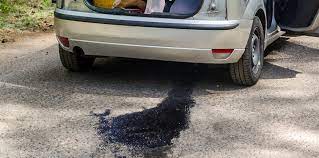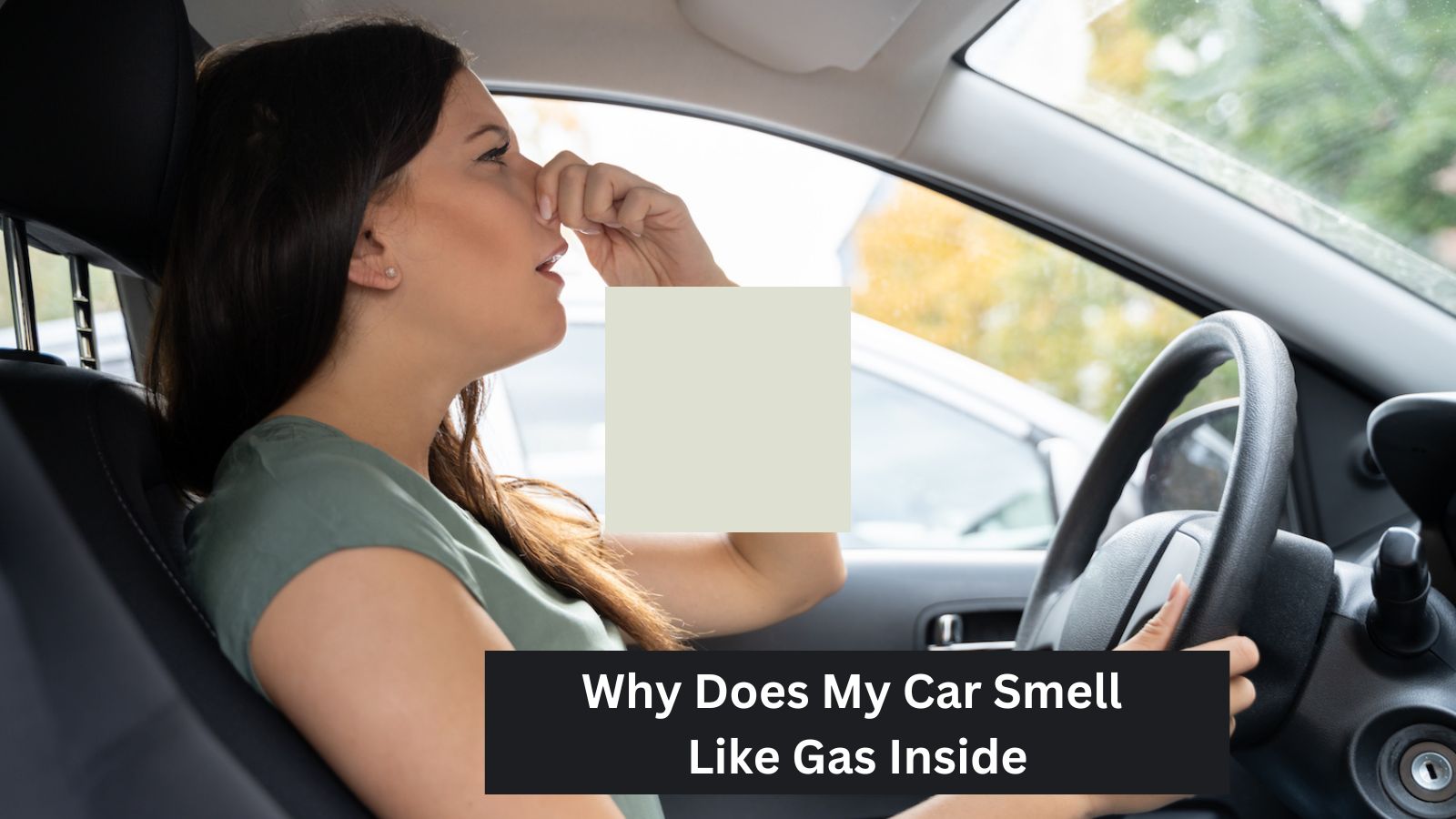Gas is truly combustible, so assuming why does my car smell like gas inside, you ought to attempt to decide why before you turn over the motor. You might smell gas for several harmless reasons, but the worst of them can be very dangerous.
There are approximately 150 chemicals in gasoline, none of which are safe to breathe. Having said that, one of the chemicals, benzene, gives off a sweet smell that many people like. However, due to the toxins they contain, gasoline vapours which should never be inhaled.
As a result, if your SUV, truck, or car still smells like gas after you leave the pump, you should be concerned. The cabin of your vehicle can smell gasoline because of several problems. Therefore, let’s examine the precise reasons why you might smell gasoline and what you should do about it in greater detail.
We will discuss five of the most common causes of why it smells like gas in your car. We recommend scheduling a service appointment with an authorised dealership for any issue with your vehicle, including the gas smell.
Let us begin with why your car will smell like gas.
Table of Contents
Top Reasons Why Does My Car Smell Like Gas Inside
As a car owner, one of the most concerning issues you can experience is a strong smell of gas inside your vehicle. Not only can this be a potential safety hazard, but it can also be an indication of a more serious problem with your car. In this article, we will explore some of the common reasons why your car may smell like gas inside and what you can do to address the issue.
1. Fuel Evaporation Problem
A hole in the vehicle’s evaporative emanation framework, which courses gas exhaust from the gas tank to the motor to be scorched, could bring about a gas smell and may cause the check-motor light to illuminate on the instrument board.
Additionally, gas can enter the vehicle through the ventilation system if the fuel injector or spark plug is not properly sealed. A fuel-tank vent hose that is leaking or a rich fuel mixture that is the result of a broken fuel pressure regulator or clogged air filter are two other potential causes of a gas smell.
Even though the majority of these aren’t serious, they all probably need to be found and fixed by a professional.
2. Fuel Leak
When gasoline is detected in a vehicle, this is frequently the first issue that comes to mind. The fuel tank itself is one of the most likely places for a leak to occur. If this is the case, while you’re parked, you might see a rainbow-coloured gas puddle under your car’s rear bumper.

However, a leak could occur in more than just the fuel tank. Fuel lines carry gasoline from the tank to your engine, and one of these may be leaking. A technician will be able to locate the leak and replace the component that needs to be replaced.
This smell could be brought on by a fuel leak, but there are other possibilities.
3. Spark Plug Issue
The spark that ignites the mixture of fuel and air and causes combustion produced by the spark plugs in your vehicle. They are therefore directly screwed into the combustion chamber.
The spark plugs ought to be fastened in such a way that none of this mixture can escape. However, some of the fumes may be able to escape the cylinder if the spark plug is not sufficiently tight.
If the spark plug is cracked, the same thing can happen. Through the HVAC intake, these fumes may enter the cabin when they escape.
4. Fault in the EVAP System
Air is polluted by fuel vapours. To battle this, advanced vehicles are furnished with an evaporative outflows control framework, otherwise called an EVAP framework. The gasoline vapours are captured in a charcoal-filled canister by the EVAP system.

The fumes are sent to the engine for combustion when a purge valve in the canister opens. However, a flaw in the EVAP system could allow these fuel vapours to escape, resulting in a gasoline-like odour in your vehicle.
A broken charcoal canister or a shorted valve circuit could be the cause of this. In any case, a problem with the EVAP system will most likely also trigger the check engine light.
5. If Your Car is Old, It Is More Likely To Have a Smell
When you start and shut your car, the technology in the carburettor and float bowl of cars built before the middle of the 1980s can make them smell like gas.
Additionally, pre-owned automobiles may not have as effective an integrated evaporative emissions system as brand-new automobiles. Because of this, gasoline vapour can easily enter your vehicle.
There may not be a workaround for an older emissions system, so this issue may not have a direct solution. Service on vintage pre-owned vehicles can be challenging. However, it won’t be a problem if the gasoline smell goes away quickly.
Positively, if a loose gas cap is the cause of the gas smell, it should be simple to replace it.
Since it has become so undeniably obvious where a gas-polluted vehicle smell comes from, we should figure out how to dispose of it
Indeed, even new vehicles need legitimate vehicle upkeep to forestall a large portion of the causes referenced previously. By having your car serviced every 12,000 miles, you can catch issues before they become costly repairs.
What to Do When You Detect The Smell (Outside)
Turn off your engine if you smell gasoline while it is running. You don’t want a fire to start because running engines produce a lot of heat in the exhaust system and, to a lesser extent, the engine itself. If you smoke, put your cigarette away from where the smell is right away.
Through fuel lines at high pressure, gas is pumped from the fuel tank, which is usually in the back of the vehicle, to the engine, which is usually in the front. Due to the high pressure, even a small leak can send fuel a long distance away, frequently in a highly combustible spray or mist. Especially assuming this break is in the motor compartment or close to the hot exhaust framework, the fuel can burst into flames.
What to Do When You Detect the Smell Inside Your Car
If you notice a gas scent inside your vehicle and you realise it isn’t coming from your garments (see beneath) there’s a decent opportunity it’s brought about by a serious fuel spill in the motor compartment, and the vapour is being syphoned into the inside through the vehicle’s ventilation framework.
For each of these scenarios, professional assistance is required. It’s time to call a tow truck if you can’t prove that the gasoline smell is coming from a less dangerous source. But before you do that, you can look for some potential gas-smell sources that are mostly considered to be “innocent.”
Try a Gas cap to fix the gasoline smell
Your car’s smell might not be caused by anything more serious than a broken, loose, or missing gas cap. Because this cap prevents gasoline vapours from entering your gas tank, a broken cap could cause your vehicle to smell bad.
A free gas cap is the simplest to fix: simply tighten the screw. However, even a broken or missing gas cap can be fixed quickly and cheaply: merely acquire a new gas cap. They are inexpensive, and setting them up is a breeze!
Conclusion
If you drive a car that smells like gas, you won’t have to worry about gas cap leaks or fume exposure. As soon as you fix the issue, the smell will quickly disappear. However, prolonged inhalation of gasoline fumes poses a threat to one’s health and can even result in death.
If there are gas odours in your car as a result of a fuel leak, it is best not to drive. You might want to have your vehicle towed to the repair shop due to the severity of the leak and the damage to the fuel system. Repair any car damage as soon as possible and stop the leak.
Get your car serviced every 10,000 to 12,000 miles to avoid problems. Additionally, when changing the oil every 5000 to 7000 miles, you might want to check the gas cap. Search for indications of harm, particularly to the elastic gasket or O-ring.
- Bad Rack And Pinion Symptoms You Should Never Ignore - February 10, 2026
- How To Fix Exhaust Leak Properly Without Costly Mistakes - February 10, 2026
- Fuel Pressure Regulator Symptoms And How To Spot Failure Early - February 10, 2026


